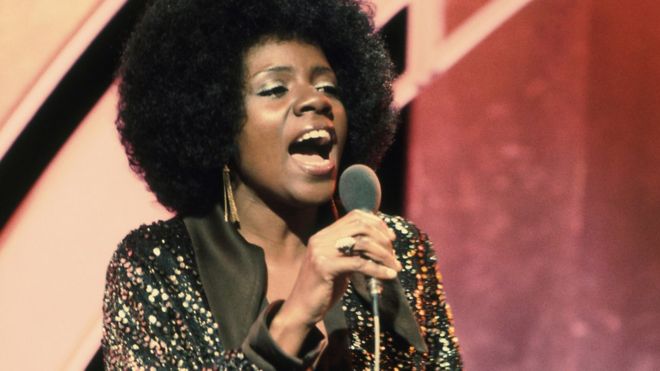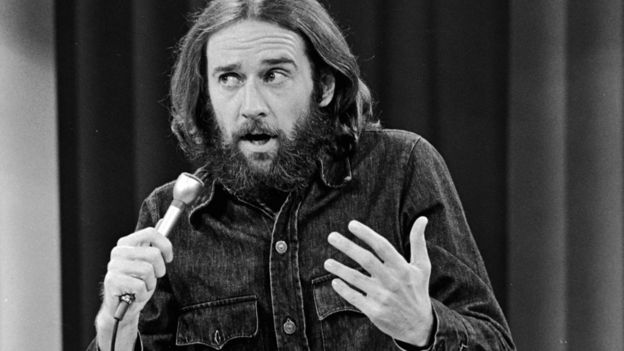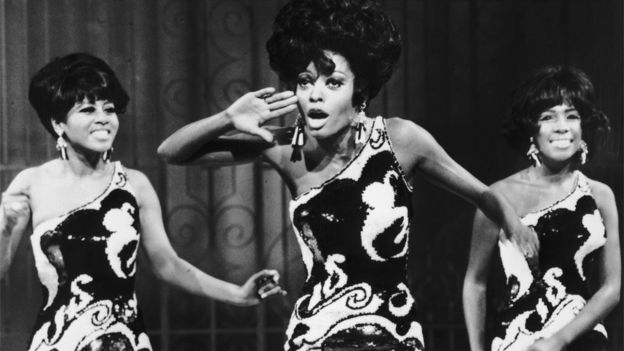Gloria Gaynor's I Will Survive preserved for posterity

Gloria Gaynor's I Will Survive will be preserved for posterity, after being selected to enter the US National Recording Registry.
It joins Metallica's Master of Puppets and Mahler's Symphony No 9 on the list of culturally significant recordings.
Twenty-five such works are selected for preservation every year by the US Library of Congress.
This year's picks also include comedian George Carlin's notorious "seven words you can't say on television" sketch.
The routine, which appears on the star's 1972 album Class Clown, lists the "heavy seven" profanities which even today would cause problems for censors.
"Those are the ones that'll infect your soul, curve your spine, and keep the country from winning the war," Carlin observed, challenging the government's ability to define acceptable language.
 Getty Images
Getty Images
Ironically, an uncensored broadcast of the monologue led the US Federal Communications Commission to issue an order prohibiting the words as "indecent". In 1978, the Supreme Court upheld the order, establishing a decency standard that remains in effect today.
"These words have no power," Carlin later argued. "We give them this power by refusing to be free and easy with them. We give them great power over us."
Gaynor's disco anthem was described by the Registry as an "anthem for people of all kinds".
It was written by Freddie Perren and Dino Fekaris, and first inspired by Fekaris's realisation he would be alright after being fired.
For Gaynor, the song held added meaning because she was recovering from a serious spinal injury. "I was actually at the mic in a back brace, believing the song would save my career - and it did," she said.
"I Will Survive is my mantra, the core of my God-given purpose," the singer told the Library of Congress in a statement. "It is my privilege and honour to use it to inspire people around the world of every nationality, race, creed, colour and age group."
 Getty Images
Getty Images
Nominations for the Recording Registry are made by the public and the National Recording Preservation Board. They must be "culturally, historically or aesthetically significant" and at least 10 years old.
The oldest recording on this year's selection is Let Me Call You Sweetheart by the Columbia Quartette (also known as the Peerless Quartet), released in 1911.
It was one of the giant parlour-room ballads of the period, selling a purported five million copies in sheet music alone. It was first recorded by Tenor Arthur Clough, but it was the quartet's arrangement that became a standard for US vocal harmony groups.
Also represented this year are two versions of Kurt Weill's Mack The Knife, recorded by Louis Armstrong and Bobby Darin; and two episodes of Destination Freedom, a Chicago radio programme dating from 1948, which presented the accomplishments of black Americans and the prejudices they faced.
Pop songs admitted to the Registry include The Supremes' Where Did Our Love Go, The Impressions' People Get Ready and Billy Joel's Piano Man, while guitarist Carlos Santa sees his crossover album Abraxas included in its entirety.
The Registry now contains 450 recordings, and the best existing versions of each are housed at the Packard Campus for Audio Visual Conservation in Culpeper, Virginia.
No comments:
Post a Comment